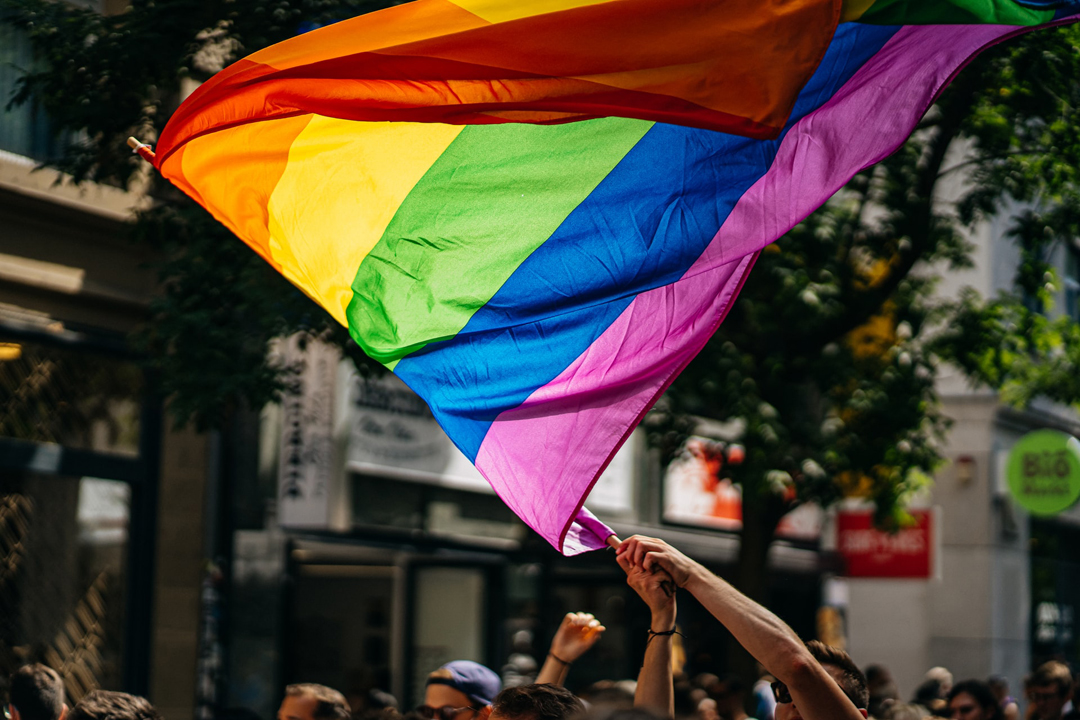
Being Right
By Jemy Gatdula

The problem with Pride Month is that there’s nothing progressive about it.
Any development, any change, any new scientific invention, can only be said to be “progressive” if such help achieve an ideal, a rightful end. Anything else, anything less than that, could only be selfish self-gratification, and any so-called “progress” made in that direction is therefore in actuality ipso facto an act of regression.
PROGRESS IS A USELESS WORD
The intellectual GK Chesterton puts it this way: “Progress is a useless word; for progress takes for granted an already defined direction: and it is exactly about the direction that we disagree.” And indeed, Chesterton gets it utterly right: how can we meaningfully talk about progress until we have decided on the end towards which we wish to progress. Thereafter progress must be judged in relation to the end it serves.
Progress has to be viewed and measured towards a solid identifiable goal that we as individuals and as a society strive for and strive together. For us as a society, that goal is one geared coherently towards the common good. For us as individuals, our end is a life of virtue contributive to that common good. Pride Month is neither of those things.
YOU WILL NOT JUST TOLERATE ME, YOU WILL CELEBRATE ME
The underlying (albeit confused) argument of the LGBT movement is that they deserve to be celebrated for being born “that way.” But, as biology professor Daniel Kuebler (“Memo to Lady Gaga: ‘Born This Way’ Doesn’t Mean ‘Act This Way’,” April 2013, Public Discourse: The Journal of the Witherspoon Institute) points out, such an argument isn’t supported by facts and logic: “The underlying message is that we as a society should just accept any and all manifestations of sexual orientation and sexual behavior because people are merely acting upon their God-given biological inclinations.”
However, “there are two problems with this type of reasoning. First, it’s questionable whether sexual orientation is biologically determined. Second, even if genetic and developmental factors cause one to have same-sex attractions, it does not follow that one’s biology should determine one’s behavior, much less dictate one’s morality.”
Bottomline: “We are not at the mercy of our biology. This is what sets humans apart from the other animals.”
Another biologist, David Haskell, had to admit (ironically by way of a New York Times article) that animal behavior “does not provide [us] ready-made moral guidance.” Precisely because we are humans and (as Kuebler posits) “our sexual behavior is certainly influenced by our biology (this is true regardless of our sexual orientation). Yet the mere fact that we have a biological urge or tendency does not give us justification to act on it. In fact, the legal and social framework of civil society is structured by the premise that we should keep our biologically-driven desires in check or channel them for the sake of the common good.”
That is why arguments equating “sexual orientation” or that decidedly nebulous concept “gender identity” with race or sex are simply wrong. The former two involve questions of character, while the latter two are of traits. That distinction is crucial.
“Character is comprised of one’s voluntary actions, and it is reasonable to make judgments about actions. While race implies nothing about one’s actions, sexual orientation and gender identity are frequently descriptions for one’s actions: ‘gay’ denotes men who engage in voluntary sex acts with other men, ‘lesbian’ denotes women who engage in voluntary sex acts with other women, and ‘transgender’ denotes a biological male who voluntarily presents himself to the world as if female or a biological female who voluntarily presents herself to the world as if male. ‘Race’ and ‘sex’, by contrast, clearly refer to traits, and in the vast majority of cases denote no voluntary actions.” (“Sexual Orientation and Gender Identity Are Not Like Race,” Ryan T. Anderson, March 2015, Public Discourse: The Journal of the Witherspoon Institute)
THE LGBT’S GHOST IN THE SHELL
The celebration of Pride Month by certain government offices and academic institutions are further misguided for three things:
First, it goes against the idea of body and intellect unity upon which our constitutional and social system is founded upon and insists on the alien idea that our bodies don’t matter, that our entire humanity is essentially but a “ghost in the shell.”
Thus, Pride Month seeks to shut down discussions “based on moral views common to the Abrahamic faith traditions and to great thinkers from Plato to Kant as unjust discrimination. Whether by religion, reason, or experience, many people of goodwill believe that our bodies are an essential part of who we are. On this view, maleness and femaleness are not arbitrary constructs but objective ways of being human to be valued and affirmed, not rejected or altered. Thus, our sexual embodiment as male and female goes to the heart of what marriage is: a union of sexually complementary spouses” (see Anderson).
This disconnect, this opposition, to a foundational philosophical tenet of our society is not accidental: “Gender ideology is part of a dramatic transformation in the notion of selfhood that has been underway since at least the 18th century. This ideology is not an isolated phenomenon, but one element of a general anthropological shift that is taking place in modern society. When all external markers for stable identity are removed — even those provided by the physical sexed constitution of our own bodies — then the question of who exactly we are as individuals becomes both intensely urgent and impossible to answer.”
Thus, “the body can be seen as a problematic alien presence that prevents the individual from being truly happy and fulfilled. Thus, my body is not me in any deep or meaningful sense. Rather it is an instrument by which the real me — the psychological entity that dwells within the body, as within a space suit — can be realized and fulfilled. If the body stands in the way, then the body itself must be manipulated to make this realization of myself possible.” (“Gender Ideology and the Future of the Human Person,” Carl Trueman, March 2023, The Heritage Foundation)
Second is the fact that the LGBT ideology, which Pride Month celebrates and advances, has been proven harmful to society. Take the LGBT movement’s cause célèbre: same sex marriage. Here, a “new study published in the February 2015 issue of the British Journal of Education, Society, and Behavioural Science appears to be the largest yet on the matter of same-sex households and children’s emotional outcomes. It analyzed 512 children of same-sex parents, drawn from a pool of over 207,000 respondents who participated in the (US) National Health Interview Survey (NHIS) at some point between 1997 and 2013. Results reveal that, on eight out of 12 psychometric measures, the risk of clinical emotional problems, developmental problems, or use of mental health treatment services is nearly double among those with same-sex parents when contrasted with children of opposite-sex parents. The estimate of serious child emotional problems in children with same-sex parents is 17%, compared with 7% among opposite-sex parents, after adjusting for age, race, gender, and parent’s education and income. Rates of ADHD were higher as well — 15.5 compared to 7.1%. The same is true for learning disabilities: 14.1 vs. 8%.” (“New Research on Same-Sex Households Reveals Kids Do Best With Mom and Dad,” Mark Regnerus, February 2015, Public Discourse: The Journal of the Witherspoon Institute).
That’s why it’s no surprise that US support for same sex marriage has plummeted, falling from 71% to the present 64% in just one short year (“Fewer in US Say Same-Sex Relations Morally Acceptable,” Gallup, June 2023).
But the negative effects of the LGBT’s activism do not end with children’s development: it goes all the way to adversely impacting the institution of marriage, freedoms of speech, and of religion, of academic freedom, the ability to contract and hire, national security concerns, collapsing population, and overall depreciation of our social fabric.
‘PROGRESSIVE’ VISION
Unfortunately, the supposed “progressive” vision being forced upon society by LGBT activists, already saddled by inherently damaging attributes, is also one strangely and amorphously goalless. In other words, empty. Ultimately it is fueled by the harried, compulsive need for change for change’s sake. But not all change is good and we can only know if something is good when seen in relation to that goal that our society has knowingly defined, that of the common good. And on that score, the LGBT advocacy has been weighed and conclusively found wanting.
Hence why it is not surprising to see companies that previously loudly advocated for Pride Month coming to a belated acknowledgment of reality: Target, Anheuser-Busch (with its disastrous transgender Bud Lite campaign), Starbucks (which recently withdrew its Pride support), Netflix, and Disney (which lost $900 million due to its LGBT or woke themed movie flops, including Elemental and Little Mermaid).
Such goes to demonstrate that, despite the humongous support given by media, multinational corporations, and the advertising industry, despite the ideological brainwashing happening in many of our universities today, all still can’t override the reality that — for government, as well as for business – Pride Month is just bad policy.
Jemy Gatdula is a senior fellow of the Philippine Council for Foreign Relations and a Philippine Judicial Academy law lecturer for constitutional philosophy and jurisprudence
https://www.facebook.com/jigatdula/
Twitter @jemygatdula